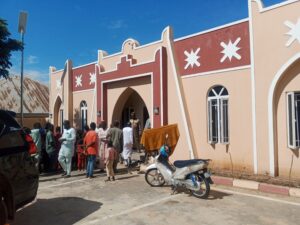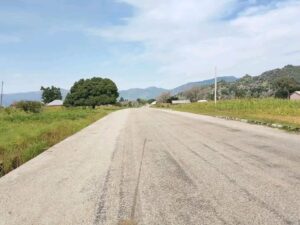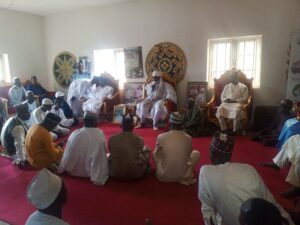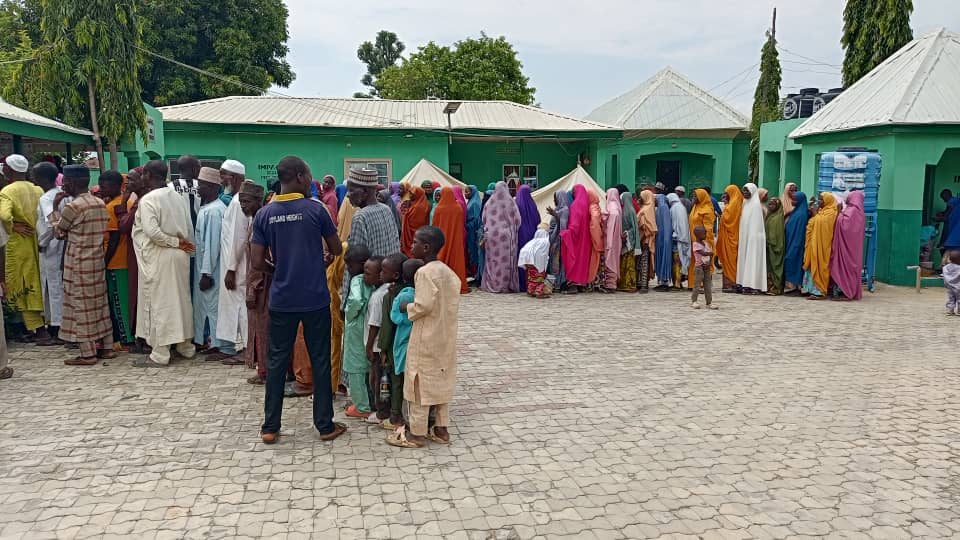
In a major effort to enhance healthcare access in underserved communities, the Federal Ministry of Health and Social Welfare, through the National Primary Health Care Development Agency (NPHCDA), in collaboration with the Nigerian Medical Association (NMA) Bauchi chapter, has conducted a large-scale medical outreach that reached over 2,700 patients across Bauchi State and parts of Jigawa.
The intervention, championed by the Honourable Coordinating Minister of Health and Social Welfare, Prof. Muhammad Ali Pate, held across Itas/Gadau, Jama’are, and Dass Local Government Areas of Bauchi State. It extended to parts of Gawram in Jigawa State and aimed to alleviate the healthcare burden on rural populations amid ongoing economic hardship.
“This exercise is targeting about 1,000 patients including 50 general surgeries, all at no cost, across eleven local governments in Bauchi and Katagum zones, and part of Gawram Local Government in Jigawa State,” said Dr. Kabiru Mohammed Abdullahi, a Consultant Gynaecologist and Vice Chairman of NMA Bauchi, who also serves as the Zonal Coordinator of the outreach.
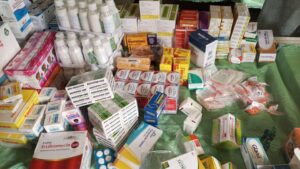
At Itas/Gadau, 886 patients were seen and 17 surgical operations carried out. The medical team included 45 personnel: 18 doctors, 8 nurses, 6 pharmacists, 4 health records officers, 4 laboratory scientists, and 5 support staff.
In Jama’are, 1,090 patients benefited from consultations, while 28 surgeries were conducted by a 47-member team comprising 19 doctors, 8 nurses, 7 pharmacists, 4 health records officers, 4 laboratory scientists, and 5 support staff.
At Dass LGA, hosted at the Primary Health Centre in Liman Katagum, another 773 patients received care. A breakdown of services rendered includes:
General Outpatient Department (GOPD): 151 males, 311 females
Paediatric Clinic: 98 males, 205 females
Psychiatric Clinic: 3 patients
Gunshot Injury Clinic: 8 patients
Dr. Abdullahi said the outreach was necessitated by the need to serve rural populations who cannot afford basic healthcare due to economic constraints. Services provided included general consultations, diagnostics, prescriptions, and surgical interventions.
“We deployed over 20 outpatient doctors and 10 surgeons, along with a strong support team drawn from pharmacy, nursing, laboratory services, and medical records,” he added.
The initiative is part of a broader national agenda to strengthen primary health care delivery and promote universal health coverage (UHC). It reinforces the federal government’s resolve to use community-driven strategies and stakeholder partnerships to reach Nigeria’s most vulnerable populations.
